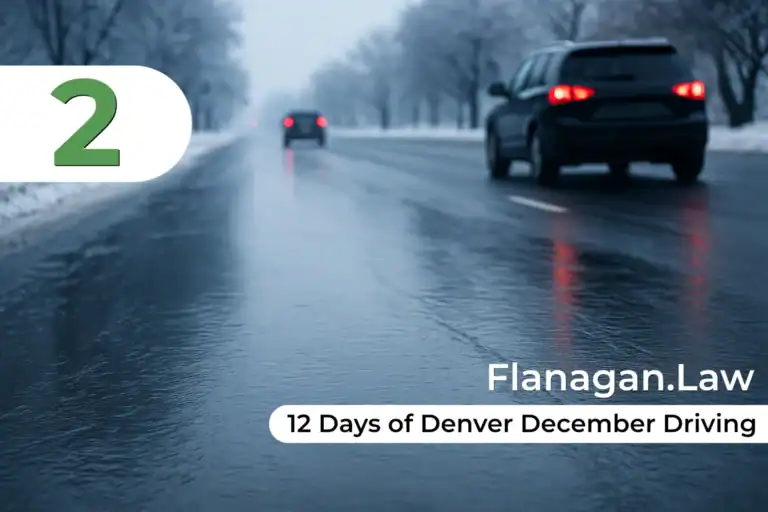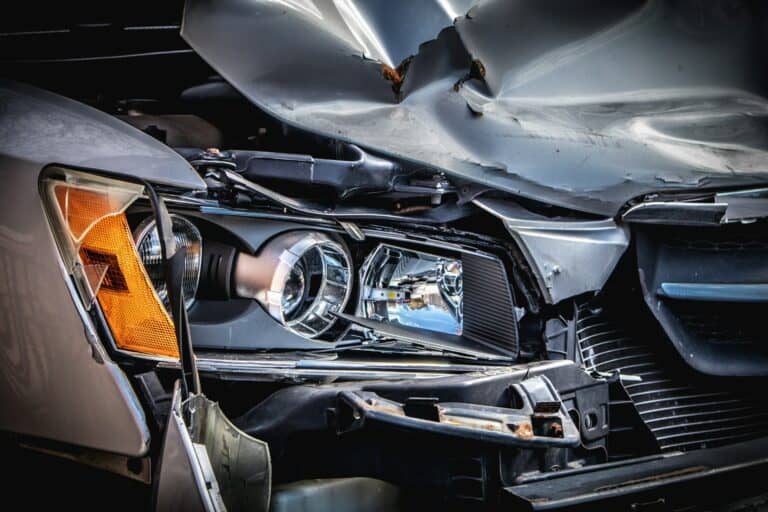Is It Illegal to Drive Without Car Insurance?

Introduction
Car insurance is a critical safeguard, providing protection for both drivers and their passengers in the event of an accident. However, some individuals may wonder whether it’s legally necessary to carry insurance, especially if they drive infrequently or believe they are safe on the road. In Colorado, driving without insurance is not only illegal but also comes with severe penalties that can impact your financial stability and your ability to recover damages in the event of an accident. In this article, we will explore the legal requirements for car insurance in Colorado, the consequences of driving without coverage, and how being uninsured can affect accident claims.
Colorado’s Car Insurance Requirements
Colorado law mandates that all drivers carry a minimum amount of liability insurance. This requirement helps ensure that drivers can cover damages or injuries they may cause to others in an accident. The minimum coverage limits in Colorado are:
- $25,000 for bodily injury per person
- $50,000 for bodily injury per accident
- $15,000 for property damage
While these are the minimum requirements, many drivers opt for higher coverage limits to better protect themselves and their assets. Whether driving through Commerce City or Denver, carrying sufficient car insurance is essential for legal compliance and financial security.
Penalties for Driving Without Car Insurance in Colorado
Failing to carry the required insurance can lead to steep penalties, even if you’re never involved in an accident. If you are caught driving without insurance, you may face the following consequences:
1. Fines
Drivers found without insurance in Colorado can face fines ranging from $500 to $1,000 for a first offense. Repeat offenses can result in even higher fines, and courts typically do not show leniency when it comes to uninsured drivers.
2. License Suspension
In addition to fines, uninsured drivers risk having their driver’s license suspended. A first offense can result in a four-month suspension, while subsequent offenses can lead to longer suspensions and the requirement to provide proof of insurance for several years after the incident.
3. Increased Insurance Costs
If you’re caught driving without insurance, your future insurance premiums are likely to increase. Insurance companies may view you as a higher-risk driver, which can lead to significantly higher rates when you do purchase coverage.
4. SR-22 Requirement
After a license suspension, drivers who were caught without insurance are often required to file an SR-22 form. This is a certificate of financial responsibility that proves you have obtained the necessary insurance coverage. The SR-22 requirement can be an expensive and time-consuming process.
How Driving Without Insurance Impacts Accident Claims
The consequences of driving without insurance extend beyond fines and suspensions—being uninsured can also have a serious impact on your ability to recover damages if you are involved in an accident. Here’s how:
1. Limited Ability to Recover Damages
If you are the victim of an accident while driving without insurance, you may find it challenging to recover damages from the at-fault driver. Colorado has a no pay, no play law, which means that uninsured drivers have limited rights to recover non-economic damages—such as pain and suffering—even if the accident was not their fault. Essentially, being uninsured significantly reduces your ability to receive full compensation for your injuries.
2. Personal Financial Liability
If you cause an accident while driving without insurance, you will be personally responsible for covering the damages and injuries you cause. Without insurance, you may face lawsuits and wage garnishments if you’re unable to pay for the other party’s medical bills, property damage, or legal fees.
3. Legal Challenges in Accident Claims
Being uninsured can also make the claims process more difficult if you’re involved in an accident. Insurance companies are less likely to negotiate favorably with uninsured drivers, and you may face additional legal hurdles when trying to recover compensation for damages, especially in cities like Aurora and Broomfield where traffic incidents are more common.
Conclusion
In Colorado, driving without car insurance is not only illegal but can also lead to severe financial and legal consequences. Whether you’re commuting through Commerce City or driving through the streets of Westminster, it’s essential to ensure you have at least the minimum required coverage. Failing to do so can result in steep fines, license suspension, and significant financial liability in the event of an accident. For drivers who want to protect themselves and others, carrying sufficient car insurance is a critical step in responsible driving.
If you’ve been involved in an accident, whether or not you had insurance at the time, it’s important to seek legal advice to understand your rights and options. Contact Flanagan Law today to discuss your case and ensure you are protected moving forward.
FAQ
What happens if I’m caught driving without insurance in Colorado?
If you are caught driving without insurance in Colorado, you may face fines ranging from $500 to $1,000, license suspension, and the requirement to file an SR-22 form. Repeat offenses come with steeper penalties.
Can I recover damages if I’m involved in an accident without insurance?
In Colorado, uninsured drivers have limited rights to recover damages for non-economic losses, such as pain and suffering. Even if the other driver is at fault, the “no pay, no play” rule may limit your compensation.
What is the SR-22 requirement?
An SR-22 is a certificate of financial responsibility that proves you have the necessary insurance coverage after being caught driving without insurance. It is typically required to reinstate your license after a suspension.
How does driving without insurance affect my ability to get coverage later?
If you are caught driving without insurance, your future insurance premiums will likely increase, as insurance companies may view you as a higher-risk driver. It can also be harder to find affordable insurance coverage.
Is it possible to avoid the penalties for driving without insurance?
The best way to avoid penalties is to ensure you have the required insurance coverage before driving. If you’ve already been caught, paying fines, obtaining insurance, and filing an SR-22 are necessary steps to reinstate your driving privileges.
By understanding the risks and consequences of driving without insurance, you can take steps to protect yourself, your assets, and your financial future. Contact Flanagan Law for legal assistance if you need guidance on insurance-related issues or accident claims.






